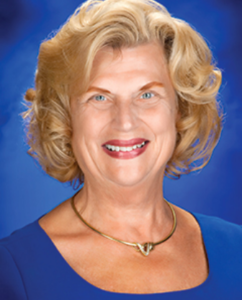
PDPM Article 3: Building Staff Competencies: Training Tips for Your Team
November 10, 2020Get ready for the October implementation date of the Patient Driven Payment Model (PDPM) with our informative series of articles authored by Leah Klusch, RN, BSN, FACHCA, founder and director of The Alliance Training Center. We’ll prepare you for the new reimbursement model with detailed insights in a stepby-step guide to PDPM success. You’ll learn about everything from building staff competencies and improving your coding practices to the value of partners and how to enhance efficiencies. The series will conclude with a checklist to help you gauge your readiness.
Even though the Patient Driven Payment Model (PDPM) uses the same MDS 3.0 database as its foundation, PDPM represents a total change to a more complex calculation. Educating staff on the changes to the data capture process is critical to survival in this new era. Here are recommended best practices when training employees.
STRESS THE IMPORTANCE OF THE ADMISSION ASSESSMENT: Instruct intake staff that the admission assessment is now the most crucial assessment in determining each patient’s reimbursement level and will only be supplemented in a very small number of cases. Make sure your assessment tools are refined and explain how to collect clear, rich data in those first few days since there is a significant amount of information required to create the payment rate. To optimize payment, use the color-coded MDS documents to enhance discussions.
ALWAYS HAVE THE RAI MANUAL HANDY: All data formulation into the MDS database must begin with an intimate knowledge of the Resident Assessment Instrument (RAI) manual. Be sure to keep a copy of the most updated version available to staff since it spells out a number of requirements facilities will need to follow starting October 1 to ensure the accuracy of resident assessments. An electronic version of the latest draft can be found here. Then have employees sign off that they’ve received the updated directions to document your training process.
TEACH UPDATED PROCESSES: Staff members need to know how diagnoses and conditions are collected so they can complete accurate coding in the MDS. They will also need to identify a primary diagnosis that maps to a clinical category where possible. CMS has a helpful PDPM ICD-10 Mappings Crosswalks for Clinical Category Mapping/Case Mix indexes, which you can access here. To ensure the integrity of this process, start by making sure your MDS data collection processes have been updated to reflect the changes initiated last October. Then, since the entire interdisciplinary team needs to understand what’s involved to get the right data into the MDS, have each discipline demonstrate competency with the new definitions and the technical capability required for data formulation. It is important to note that more than 24,000 codes will map to Return to Provider. Many of these are due to answering Unspecified for side of the body; MDS will also reject Presence or Absence as the Primary Diagnosis.
INCORPORATE TRAINING INTO ORIENTATION PROCESS: The conversion to PDPM requires an investment in education that extends beyond existing staff to new employees as they are onboarded. To make sure that those who are involved in coding understand what is required, document your assessment process in policy and procedure materials, and use these in orientations when you train new employees on the actual MDS coding actions.
STRESS COLLABORATION: With the PDPM, all departments will have a shared responsibility for documentation and an impact on the database content that produces the qualifying payment levels. That’s why it’s important to provide information on the PDPM as a whole to staff to give them the big picture so they understand why they need to adopt the changes. Then update every team member on policy, documentation and interdisciplinary communication changes to keep them informed on what they need to know to ensure careful and complete coding.
The implications for getting coding wrong can be enormous. Making sure you train those responsible and arming them with the foundation they need to get it right will be your key to success.


Leah Klusch, RN, BSN, FACHCA,
founder and director of The
Alliance Training Center
